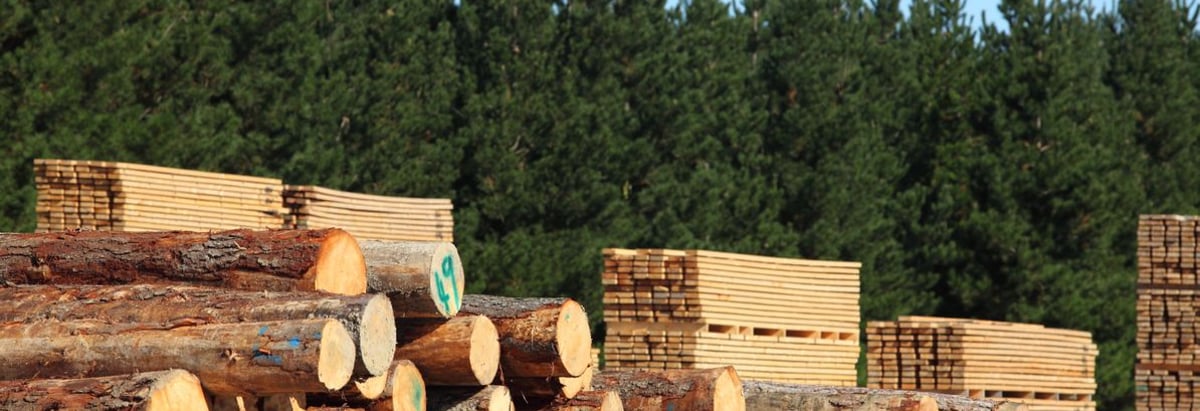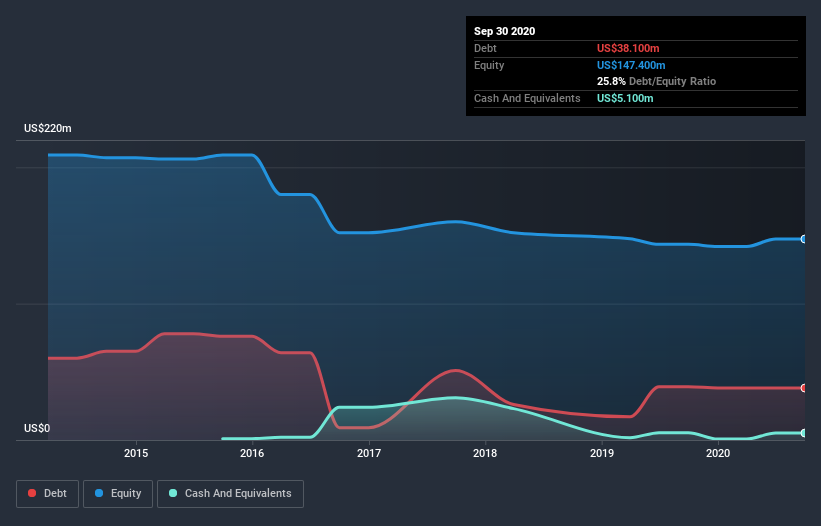- New Zealand
- /
- Paper and Forestry Products
- /
- NZSE:ARB
Does ArborGen Holdings (NZSE:ARB) Have A Healthy Balance Sheet?

The external fund manager backed by Berkshire Hathaway's Charlie Munger, Li Lu, makes no bones about it when he says 'The biggest investment risk is not the volatility of prices, but whether you will suffer a permanent loss of capital.' When we think about how risky a company is, we always like to look at its use of debt, since debt overload can lead to ruin. As with many other companies ArborGen Holdings Limited (NZSE:ARB) makes use of debt. But the more important question is: how much risk is that debt creating?
Why Does Debt Bring Risk?
Debt and other liabilities become risky for a business when it cannot easily fulfill those obligations, either with free cash flow or by raising capital at an attractive price. If things get really bad, the lenders can take control of the business. However, a more frequent (but still costly) occurrence is where a company must issue shares at bargain-basement prices, permanently diluting shareholders, just to shore up its balance sheet. Having said that, the most common situation is where a company manages its debt reasonably well - and to its own advantage. When we examine debt levels, we first consider both cash and debt levels, together.
Check out our latest analysis for ArborGen Holdings
What Is ArborGen Holdings's Net Debt?
The chart below, which you can click on for greater detail, shows that ArborGen Holdings had US$38.1m in debt in September 2020; about the same as the year before. However, because it has a cash reserve of US$5.10m, its net debt is less, at about US$33.0m.

How Strong Is ArborGen Holdings' Balance Sheet?
Zooming in on the latest balance sheet data, we can see that ArborGen Holdings had liabilities of US$20.0m due within 12 months and liabilities of US$40.8m due beyond that. Offsetting this, it had US$5.10m in cash and US$4.00m in receivables that were due within 12 months. So it has liabilities totalling US$51.7m more than its cash and near-term receivables, combined.
This is a mountain of leverage relative to its market capitalization of US$58.4m. This suggests shareholders would be heavily diluted if the company needed to shore up its balance sheet in a hurry.
We measure a company's debt load relative to its earnings power by looking at its net debt divided by its earnings before interest, tax, depreciation, and amortization (EBITDA) and by calculating how easily its earnings before interest and tax (EBIT) cover its interest expense (interest cover). This way, we consider both the absolute quantum of the debt, as well as the interest rates paid on it.
With net debt to EBITDA of 2.9 ArborGen Holdings has a fairly noticeable amount of debt. On the plus side, its EBIT was 7.6 times its interest expense, and its net debt to EBITDA, was quite high, at 2.9. Notably, ArborGen Holdings's EBIT launched higher than Elon Musk, gaining a whopping 111% on last year. When analysing debt levels, the balance sheet is the obvious place to start. But it is ArborGen Holdings's earnings that will influence how the balance sheet holds up in the future. So if you're keen to discover more about its earnings, it might be worth checking out this graph of its long term earnings trend.
Finally, while the tax-man may adore accounting profits, lenders only accept cold hard cash. So it's worth checking how much of that EBIT is backed by free cash flow. During the last three years, ArborGen Holdings burned a lot of cash. While that may be a result of expenditure for growth, it does make the debt far more risky.
Our View
ArborGen Holdings's conversion of EBIT to free cash flow and level of total liabilities definitely weigh on it, in our esteem. But its EBIT growth rate tells a very different story, and suggests some resilience. When we consider all the factors discussed, it seems to us that ArborGen Holdings is taking some risks with its use of debt. While that debt can boost returns, we think the company has enough leverage now. The balance sheet is clearly the area to focus on when you are analysing debt. However, not all investment risk resides within the balance sheet - far from it. For example, we've discovered 2 warning signs for ArborGen Holdings that you should be aware of before investing here.
Of course, if you're the type of investor who prefers buying stocks without the burden of debt, then don't hesitate to discover our exclusive list of net cash growth stocks, today.
If you’re looking to trade ArborGen Holdings, open an account with the lowest-cost* platform trusted by professionals, Interactive Brokers. Their clients from over 200 countries and territories trade stocks, options, futures, forex, bonds and funds worldwide from a single integrated account. Promoted
New: Manage All Your Stock Portfolios in One Place
We've created the ultimate portfolio companion for stock investors, and it's free.
• Connect an unlimited number of Portfolios and see your total in one currency
• Be alerted to new Warning Signs or Risks via email or mobile
• Track the Fair Value of your stocks
This article by Simply Wall St is general in nature. It does not constitute a recommendation to buy or sell any stock, and does not take account of your objectives, or your financial situation. We aim to bring you long-term focused analysis driven by fundamental data. Note that our analysis may not factor in the latest price-sensitive company announcements or qualitative material. Simply Wall St has no position in any stocks mentioned.
*Interactive Brokers Rated Lowest Cost Broker by StockBrokers.com Annual Online Review 2020
Have feedback on this article? Concerned about the content? Get in touch with us directly. Alternatively, email editorial-team (at) simplywallst.com.
About NZSE:ARB
Flawless balance sheet and slightly overvalued.
Market Insights
Community Narratives



